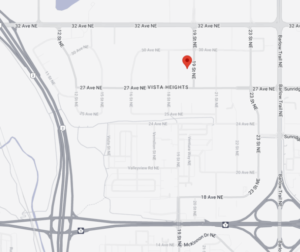Two of the leading causes of traumatic brain injuries (TBI) in Canada are falls and transportation collisions, which include car accidents, bicycle accidents, motorcycle accidents, and pedestrian accidents. As the symptoms of concussions can overlap with symptoms from other injuries, many people may not initially be aware that they have suffered a traumatic brain injury such as a concussion. Some of the common symptoms of concussions and brain injuries are listed below. If you have been injured and experience any of these symptoms, you should seek medical care.
A concussion is a type of brain injury that happens due to a hit to the head, neck or face, or the body. When you are hit on the head or body, it can cause your brain to move around inside your skull and cause a brain injury, including a concussion. It is important to note that a traumatic brain injury can occur without a direct hit to the head or loss of consciousness.
Signs of concussion from a car accident or slip and fall:
- Loss of consciousness: This is the most common and identifiable sign of a brain injury. Loss of consciousness for any amount of time requires immediate medical attention. Loss of consciousness is a symptom of a mid-grade moderate concussion, or a high grade severe concussion.
- Nausea, dizziness, light sensitivity, and vomiting: These can all be symptoms of a concussion, they are especially concerning when all of those symptoms are experienced. Immediate medical attention is recommended if you are vomiting repeatedly after an accident.
- Neck and jaw pain: Many people can experience neck injuries and Temporomandibular Joint Dysfunction after a car accident or fall. Both neck and jaw pain can be symptoms of a concussion that are commonly overlooked.
- Headaches: Headaches are a common symptom of a concussion. Severe headaches or headaches that get worse over time should be brought to the attention of medical service providers.
- Difficulty thinking: Confusion, amnesia, difficulty concentrating, and feeling tired or groggy can all be symptoms of a concussion. If you notice any changes in your ability to focus or recall information, it should be reported to your medical care providers.
- Emotional Changes: Emotional lability, including increased irritability or anger can be a symptom of a concussion. Feeling anxious, sad, or nervous for no identifiable reason can also be an emotional symptom of a brain injury.
- Change in sleep patterns: Not being able to fall asleep, sleeping too much or too little, and feeling tired can all be symptoms of a concussion. Any change in your sleep habits after you are injured in a car accident should be reported to your healthcare provider.
Concussions can not be detected by routine medical scans, such as X-rays, CT Scans, or MRI; they are diagnosed by changes in behaviour such as how someone thinks or feels. It is important to know the signs of a concussion to make sure proper diagnosis and treatment is received. If you have any of the above symptoms, you should bring them to the attention of your medical care provider.
Traumatic brain injuries, including concussions, can severely affect your quality of life. Dealing with the symptoms of a brain injury can take years of treatment, and the changes negatively impact your ability to work or maintain relationships. An experienced personal injury lawyer sensitive to the signs and effects of a traumatic brain injury can help you navigate the claims process.
The experienced personal injury lawyers at Brar Law can help you navigate the intricacies of the claims process, allowing you to focus on your recovery. Contact us today at (403) 770-9242 or email info@brarlawfirm.com to schedule a free consultation.





